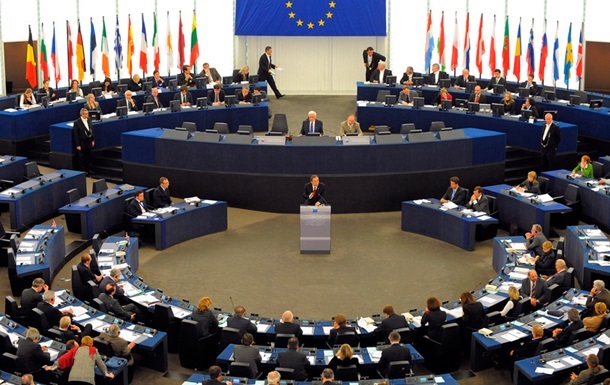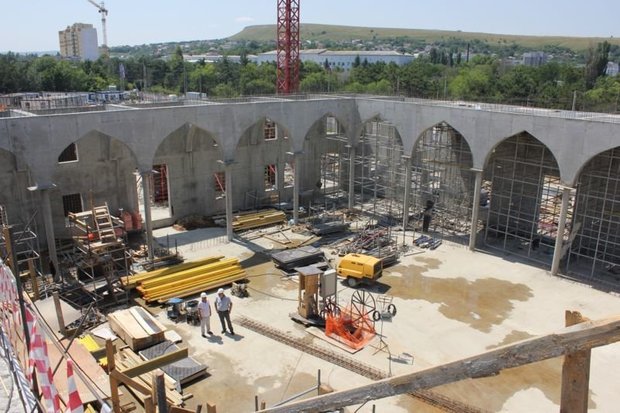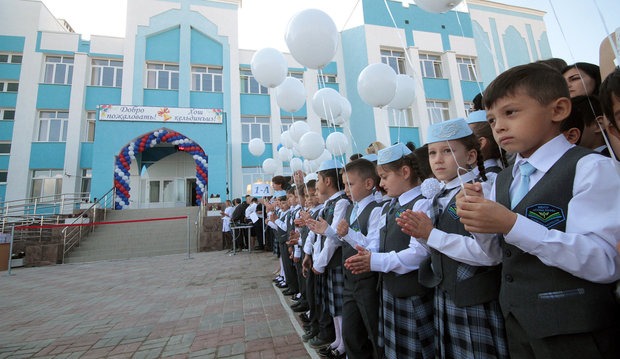''The Russian Federation by deed not by word cares about the Crimean Tatars''
Political expert Ivan Mezyukho: about the openness of Crimea and human rights on the Peninsula
The leader of the Crimean Tatar organization Milli Firka Vasvi Abduraimov lamented a tight situation of his people after Crimea joined Russia in an interview with Realnoe Vremya. The fact that almost simultaneously the European Parliament published its latest report on human rights violations on the Peninsula adds piquancy to the situation. The scientist and our columnist Ivan Mezhyukho in his turn notes that in recent years the situation of the Crimean Tatars has significantly improved. He gives his arguments in the column written for Realnoe Vremya.
Myth about infringement of Crimean Tatars
Various kinds of fiction have been disseminated about our country for centuries. In the age of information warfare, the outright Russophobic and anti-Russian rhetoric, produced mainly in Western countries, has become more sophisticated and massive. After the fateful reunion of Crimea with Russia Moscow was showered with thousands of accusations from allegedly independent international human rights organizations, governments and leaderships of foreign powers.
I will never forget the conversation with a Ukrainian political expert on the sidelines of a popular talk show on the leading federal TV channel of the country. A Ukrainian expert was vehemently telling me, a Crimean, how in Crimea the rights of Crimean Tatars were allegedly violated and how they, the Crimean Tatars, allegedly take to pro-Ukrainian rallies en masse on the Peninsula. First I thought that the expert from the neighboring country was just ''warming up'' in his lies before the air, but then I realized that the Ukrainian expert took such a strong anti-Russian pill that bringing him back to life, that is, the perception of true information, was not possible or a recovery needed the will of the ''patient'', who someday maybe decide to recover from the anti-Russian insanity imposed on him by the Ukrainian media.

''In fact, the European Parliament in its resolution justifies Mejlis extremists.'' Photo: korrespondent.net
Another batch of lies about the alleged infringement of the Crimean Tatars on the Peninsula last week was thrown by the European Parliament that adopted a resolution on Crimea. Another fake by the European institution has not become a surprise as just recently, in September, the world saw another false report of the office of the UN High Commissioner for Human Rights, which specifies the so-called ''facts'' of the infringement of the rights of the Crimean Tatars. The report of the office of the UN High Commissioner for Human Rights and the resolution of the European Parliament contain the same accusations in the address of the Russian Federation. There is no sense to list them because from year to year these accusations have run around the same topics.
The European Parliament in its resolution, in fact, justifies Mejlis extremists, and the report of the office of the UN High Commissioner on Human Rights even states that the prohibition of activities in Russia of Mejlis of the Crimean Tatar people (the organization banned in Russia) allegedly led to infringement of civil, political and cultural rights of the Crimean Tatars. However, the authors of this document omitted how the prohibition of extremist organization bringing the evil for the Crimean Tatars can lead to the infringement of the Crimean Tatar people. This is obvious because they would not write about how the activists of the banned in Russia Majlis organized various ''blockades'' of the Peninsula, publicly called for extremist actions, to the implementation of criminal offenses.
Figures don't lie
The official statistical data publicly available on the Internet tells about the fact that the problems of the Crimean Tatars began to be solved in Crimea as part of Russia. According to the Ministry of economic development of the Republic of Crimea, in the period from 2014 to 2017 in comparison with the period from 2010 to 2013 there was a growth of funding for the resettlement of formerly deported citizens 8,4 times. That is, over the period of Crimea as part of Russia, 1,996,4 million rubles were allocated for this purpose, while in Ukraine in the period 2010-2013 it was allocated only about 240 million rubles on such activities.

''It is in Russian Crimea in 2016 the construction of the Cathedral Mosque in Simferopol was begun.'' Photo: ru24news.ru
Over the period 2014-2017, it has been allocated 4,365 lands to the citizens who fall under the category of the deported, 400 families were provided with housing, while in Ukraine in the period 2010-2013 only 106 families among the deportees were provided with housing, lands were not allocated.
After all, it is in Russian Crimea in 2016 the construction of the Cathedral Mosque in Simferopol was begun, and on 1 September of this year in the micro rayon of compact residence of Crimean Tatars Fontany in the Crimean capital there was opened the ''school of four Ukrainian presidents''. During all years of independence of Ukraine, senior officials of the Ukrainian state were promising to build the school, and only in Russian Crimea its construction was completed. Now it is the most modern school on the Peninsula, which received the name of the Hero of Russia, Crimean Tatar Alima Abdennanova.
Finally, according to the Constitution of Crimea adopted in 2014, the state languages of the republic are Russian, Ukrainian and Crimean Tatar. The Russian Federation not by word but deed cares about the Crimean Tatars, as well as the representatives of other peoples living on the Peninsula.

''On 1 September of this year in the micro rayon of compact residence of Crimean Tatars Fontany in the Crimean capital there was opened the ''school of four Ukrainian presidents.'' Photo: informburo.dn.ua
Open to the world
The blindness and deafness of the European officials to the Peninsula is striking. In the resolution of the European Parliament, MEPs demand unfettered access to Crimea for international monitors in the area of human rights. This demand or appeal is absurd as no one in Russia prevents foreign citizens in their quest to visit the Peninsula. Crimea is open for the whole world. Foreign journalists, businessmen, politicians and artists regularly visit the Peninsula. They are not restricted in movement. They are free to travel around whole Crimea.
However, the authors of various false anti-Crimean reports and resolutions do not actually strive to get to Crimea and see with their own eyes a positive change in the region during the period of its stay in Russia. Instead, the international ''human right defenders'' and European officials spoil papers with next anti-Crimean opus, while not bothering just to do a tourist trip to Russian Crimea. They have another task. All these crooked reports and resolutions on Crimea are designed to justify the continued anti-Russian sanctions, the end of which is apparently still not seen.